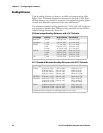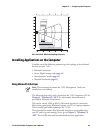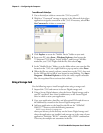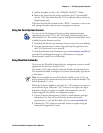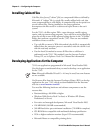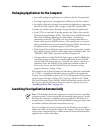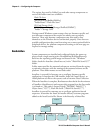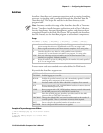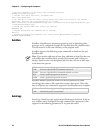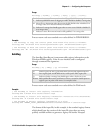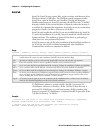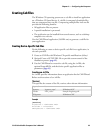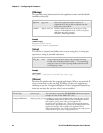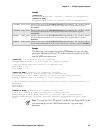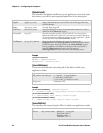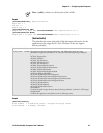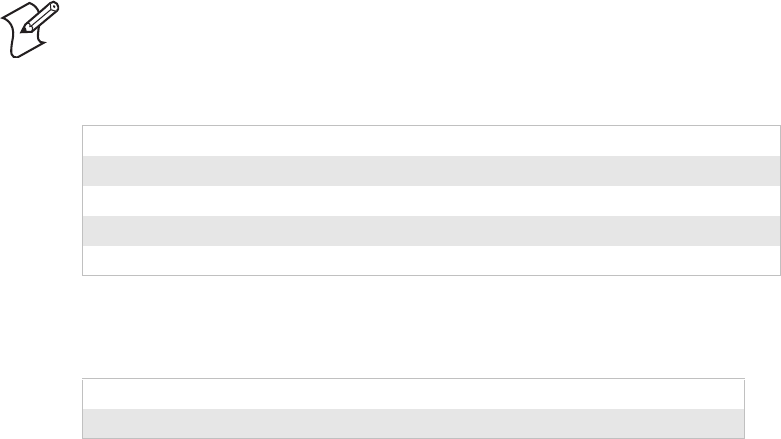
Chapter 3 — Configuring the Computer
50 751G Color Mobile Computer User’s Manual
; Perform a SetEvent on the event name "autoexec_started".
SIGNAL "autoexec_started"
; Include this child data file, childexec.dat.
CALL "\childexec.dat"
; Use autocopy to copy the audio control panel from flash file store to the windows
directory. Wait for up to 60 seconds for it to exit.
EXEC "\Flash File Store\SYSTEM\autocopy.exe" -S"\Flash File Store\System\CPLAudio.cpl"
-D"\Windows\CPLAudio.cpl"
; Change the default EXEC wait time to 90 seconds.
EXECWAIT 90
; Suspend processing any commands for 10 seconds.
WAIT 10
; Suspend processing any commands until event called MyEventName is signaled.
WAITFOR "MyEventName"
AutoRun
AutoRun (AutoRun.exe) automates operations such as launching other
processes and is configured through the AutoRun data file (AutoRun.dat).
This file must be in the same directory as the program itself.
AutoRun supports the following script commands in AutoUser.dat and
AutoRun.dat.
AutoRun handles quoted file names for the first parameter to allow
specifying path names or file names that contain white space. Note only
one set of quotes per command is supported. AutoRun.dat entry examples:
AutoCopy
AutoCopy (AutoCopy.exe) copies/moves files between locations. It has no
user interface and is configured through command line arguments. It has
support for the following parameters, in no particular order:
Note: If you need to add steps at boot time, add them to AutoUser.dat, not
to AutoRun.dat. AutoRun.dat is provided by Intermec and is subject to
change. AutoUser.dat is the designated place for the end user to add steps
to the boot time process.
EXEC Launches a specified program, waits for it to complete (up to 10 minutes).
CALL Processes a specified file of commands and returns.
CHAIN Processes a specified file of commands and does not return.
RUN Loads a specified program and executes it.
LOAD Loads a specified program and executes it.
RUN “Flash File Store\Apps\some.exe” arg1, arg2, arg3
CALL “Flash File Store\2577\usercmds.dat”



